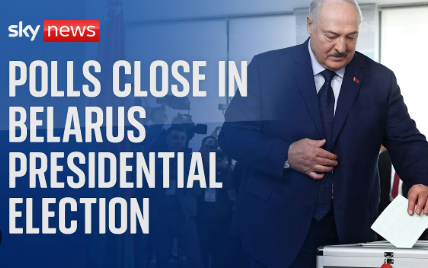Here’s a detailed 700-word article with subtopics and structured paragraphs.
Lukashenko Claims Seventh Term in Controversial Belarus Presidential Election
Introduction
Alexander Lukashenko, Belarus’ long-time leader, has secured his seventh consecutive term in office amid widespread allegations of electoral fraud. The election, held under strict government control, has been widely criticized by opposition groups, international organizations, and Western governments. Despite accusations of vote-rigging and suppression of dissent, Lukashenko remains in power, reinforcing his authoritarian grip on the country.
Election Process and Allegations of Fraud
The election process in Belarus has been marred by a lack of transparency and fairness. Reports indicate that independent observers were barred from monitoring the vote, and opposition candidates faced harassment and imprisonment before the election. Critics argue that the results were pre-determined, with state-controlled institutions ensuring Lukashenko’s victory.
According to official figures, Lukashenko won by a landslide, but opposition leaders and international watchdogs claim that the numbers were manipulated. The Organization for Security and Co-operation in Europe (OSCE) has repeatedly condemned Belarusian elections as neither free nor fair, citing irregularities such as ballot stuffing, voter intimidation, and media censorship.
Opposition and Public Discontent
Despite the government’s attempts to silence dissent, opposition movements have gained significant traction. Svetlana Tikhanovskaya, a prominent opposition leader who fled the country for her safety, has become a symbol of resistance against Lukashenko’s rule. Many Belarusians believe she was the true winner of past elections, including the widely disputed 2020 vote.
In the wake of the recent election, mass protests erupted in major cities like Minsk and Brest. Thousands of demonstrators took to the streets, chanting slogans against the regime and demanding political change. However, the government responded with brutal crackdowns, deploying riot police, making mass arrests, and using excessive force to suppress the demonstrations.
International Response and Sanctions
The international community has strongly condemned Lukashenko’s re-election. The European Union, the United States, and the United Kingdom have refused to recognize the results, calling them fraudulent. Western nations have imposed a series of sanctions targeting top Belarusian officials, including travel bans and asset freezes.
Despite international pressure, Lukashenko continues to receive support from Russia. President Vladimir Putin has stood by his Belarusian counterpart, providing economic aid and political backing. This relationship has further complicated efforts by Western governments to push for democratic reforms in Belarus.
Media Censorship and Human Rights Violations
Under Lukashenko’s leadership, press freedom in Belarus has steadily deteriorated. Independent journalists and media outlets face constant persecution, with many reporters arrested or forced into exile. The government controls major television channels and newspapers, ensuring that pro-regime narratives dominate the public discourse.
Human rights organizations have documented numerous cases of political prisoners, torture, and forced disappearances in Belarus. The government’s repressive tactics have drawn comparisons to some of the world’s most authoritarian regimes, with critics calling it a “dictatorship in Europe.”
The Future of Belarus
With Lukashenko securing another term, the political landscape in Belarus remains uncertain. While the regime appears strong, growing public discontent and economic struggles could pose serious challenges in the future. Many Belarusians continue to seek democratic reforms, despite the risks involved.
The opposition, though facing severe repression, remains determined to fight for change. Activists are calling for increased international pressure and more support from Western democracies. Meanwhile, economic instability and sanctions may further weaken Lukashenko’s grip on power in the long run.
Conclusion
Lukashenko’s seventh-term victory is a stark reminder of the deep political crisis in Belarus. Despite widespread allegations of election fraud, repression, and human rights violations, the regime continues to maintain its hold on power. However, with growing opposition, international sanctions, and a struggling economy, the future of Belarus remains uncertain. The people’s desire for change persists, and the struggle for democracy in the country is far from over.


Leave a Comment